- Topics
- Campaigning
- Careers
- Colleges
- Community
- Education and training
- Environment
- Equality
- Federation
- General secretary message
- Government
- Health and safety
- History
- Industrial
- International
- Law
- Members at work
- Nautilus news
- Nautilus partnerships
- Netherlands
- Open days
- Opinion
- Organising
- Podcasts from Nautilus
- Sponsored content
- Switzerland
- Technology
- Ukraine
- United Kingdom
- Welfare
Maritime: slow but steady progress in recruiting and retaining LGBT+ workers
14 September 2023
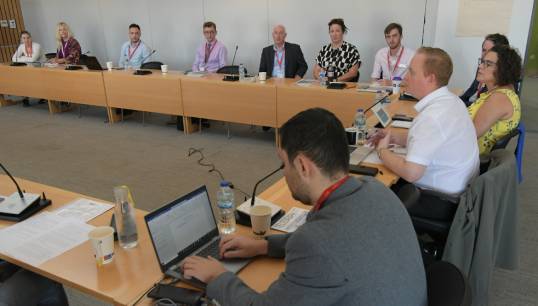
Work is underway to evaluate efforts to remove barriers for LGBT+ workers in the maritime industry, a joint Pride in Maritime (PiM) Industry Network and Roundtable heard. Deborah McPherson reports
The meeting, held on the first day of London International Shipping Week 2023, was hosted by Maritime UK and chaired by Nautilus head of international relations Danny McGowan. It attracted a range of participants across the industry including several from the Department for Transport, Maritime and Coastguard Agency, Royal Fleet Auxiliary and shipping owners and managers.
It featured three key speakers: Adam Myers, head of HR consulting, Stellamar; Sadie Saunders, maritime policy advisor at the International Transport Workers' Federation (ITF); and Gustavo Aguilar-Miranda, a Nautilus shoreside member who has spearheaded the I Exist Too initiative to create more awareness of the needs of the LGBT+ maritime community.
The speakers outlined various areas where positive progress is being made to ensure a more diverse maritime workforce; such as best practice efforts to change language and terminology and more neutral job titles; improved recruitment processes; and mandatory training on unconscious bias.
Recruiting and retaining in maritime
Mr Myers said the key to recruitment was to have consistent processes in both shore and seafaring recruitment strategies, rather than a 'bias on what that should and shouldn't look like at sea.'
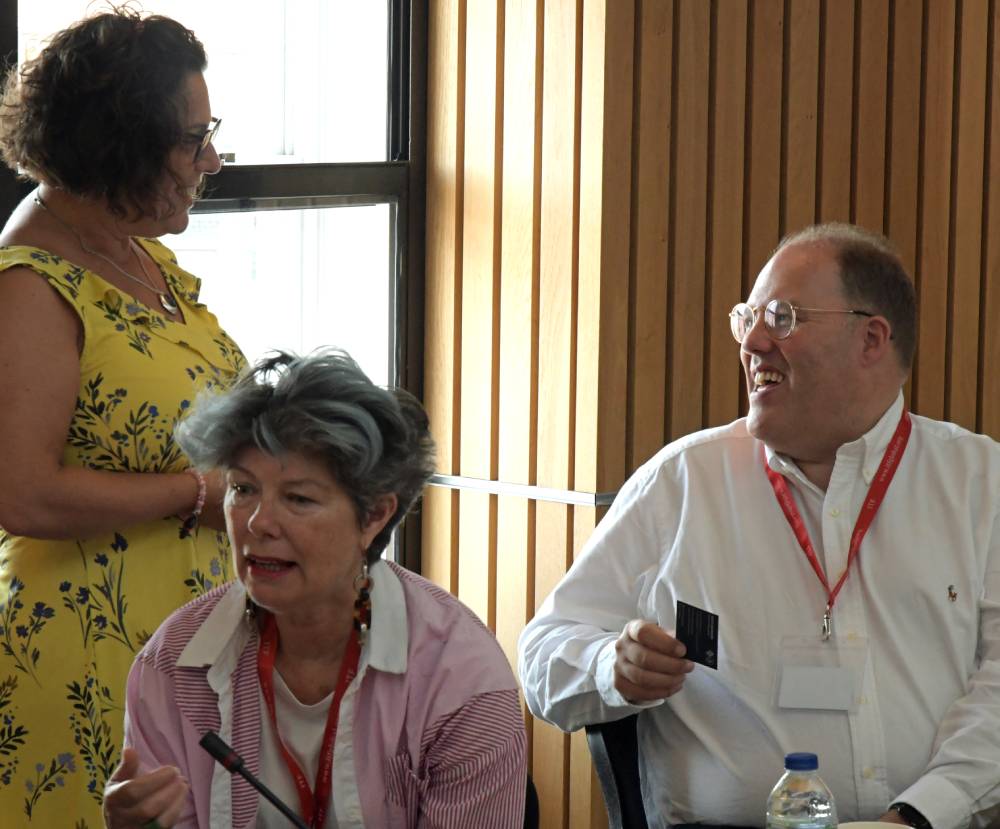
He acknowledged change is gradual and the pace also reflects the current multi-generational workforce, and a more complex society: 'We're also the most diverse culture we've ever been and it's totally transparent. So, hiring, attracting… has never ever been more complex or harder.'
Training interviewers on how to interview, looking at 'how you're packaging up your jobs, your documented job descriptions', ensuring an 'unbiased lens' during the screening process by focusing on skills, and carefully selecting 'where your advertisements are placed' are also key elements to recruiting a diverse workforce, he said, As was asking for and 'getting comfortable with' feedback. Training on diversity, inclusion, and equity should all also be part of the onboarding process if companies were serious about taking people 'on a journey' in their organisation, said Mr Myers.
What is improving?
Ms Saunders added that the International Bargaining Forum – a body in which the ITF negotiates pay, terms and conditions onboard a number of vessels with industry representatives – is discussing the possibility of job titles being amended to become gender neutral, despite some challenges at an international regulatory level. The next step now is to 'take that conversation to the International Maritime Organization [IMO] Because these titles are enshrined in STCW legislation and other conventions as well.'
Following a landmark resolution at the ITF's 2018 Congress in Singapore, a number of initiatives have been undertaken by ITF to ensure the rights of LGBT+ workers are upheld. This has included working with similar global union federations in other sectors, reviewing anti-discrimination policies, and publicly supporting Pride events and the International Day Against Homophobia, Biphobia and Transphobia. ITF's work in this area is ongoing in conjunction with a number of its affiliates such as Nautilus.
Mr Aguilar-Miranda, Nautilus and the ITF have also worked with Belgium on an information paper to be presented to the IMO's Technical Cooperation Committee in October. It will the first time that the IMO has received such a paper for ensuring LGBT+ workers are included in conversations and policies for the maritime industry, and builds on similar work at the IMO on gender diversity. It is hoped the statement will be a starting point to review the policies and pursue further positive changes. The paper identifies the work that's taking place in other UN bodies, in particular the UN 2030 Agenda for Sustainable Development with its 'leave no one behind' focus.
The paper was one of three significant outcomes of the I Exist Too project which, in the last year, has also held a global forum which launched a pro-LGBT+ Declaration for the maritime sector.
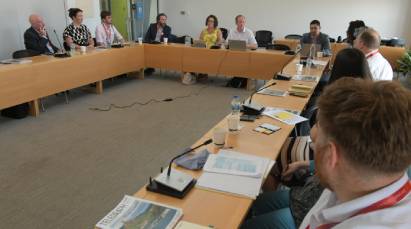
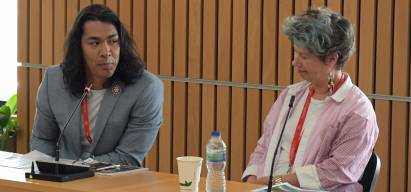
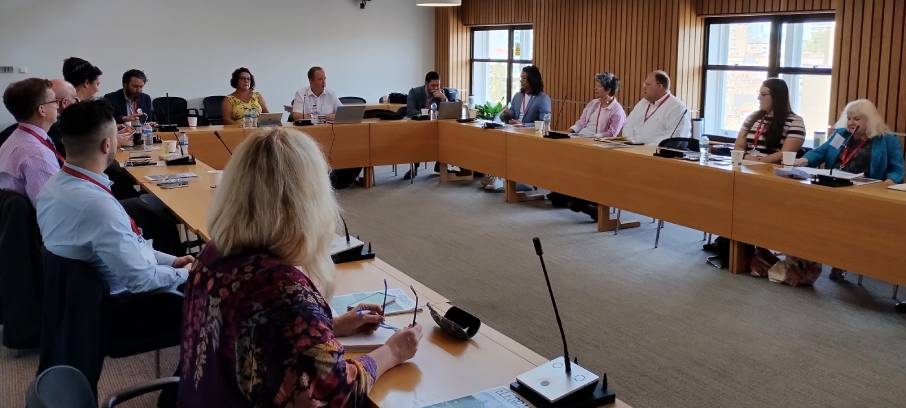
What still needs changing?
Retention will be an even bigger issue if potential seafarers do not perceive maritime as a welcoming industry for a diverse workforce. This must be addressed because retention is vital for the industry as it moves towards decarbonisation.
Further progress in removing barriers is still needed. Interviewing managers, for example, often lack any training when they should in fact be properly trained on different techniques, and improvements are urgently needed to help managers understand what constitutes protected characteristics, to ensure candidates understand the company is friendly to the LGBT+ community.
Another issue still needing to be addressed by maritime employers is the potential danger for saeafarers when they are sent to countries which don't recognise or even criminalise LGBT+ people, and where shore-leave may then be restricted as a result.
These sort of barriers make recruitment and retention of people from many underrepresented groups into the maritime industry 'really difficult' the Network and Roundtable heard. One participant also described problems meeting targets for improving the gender balance of shoreside employees due to the lack of female seafarers globally. In some sectors, however, recruitment of female cadets isn’t such a problem but retention is, so efforts are being made to adopt more 'adaptable employment policies' for new parents.
Tags
